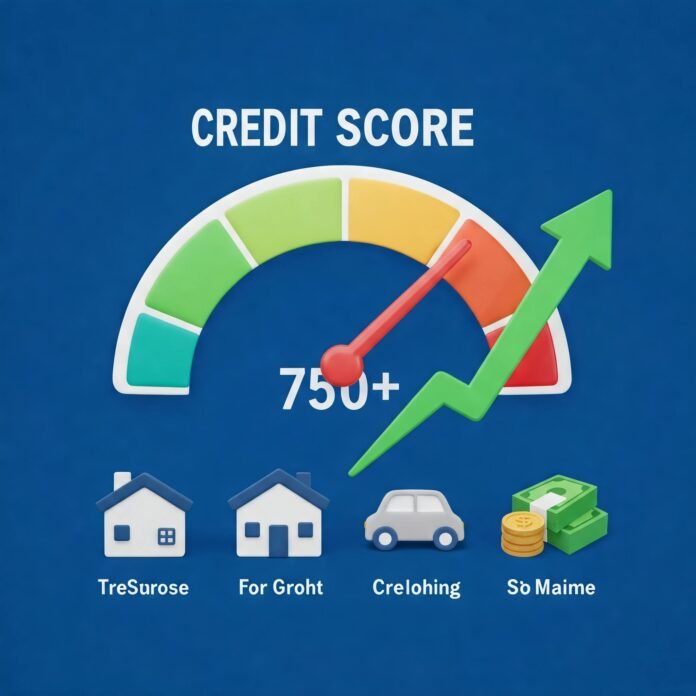Yo, my credit score’s impact on my financial future slapped me in the face like a rogue snowball while I’m holed up in my chilly Denver apartment, surrounded by empty Coors cans and a space heater that smells like burnt dreams. Just last month, I got denied for a car loan ‘cause my credit score was a measly 580, and I was legit shook, staring at my phone like it betrayed me. The air’s got that crisp Rocky Mountain bite mixed with stale pizza, and I’m spilling the tea on how your credit score affects your financial future. I’m no Wall Street bro – my bank account’s more like a sad indie playlist – but I’ve learned the hard way that your credit score is a big deal. Credit score financial future is a wild ride, and I’m dropping my raw, messy, sometimes contradictory thoughts from my Mile High chaos. Let’s climb this financial mountain together.
My Loan Denial Drama and Credit Score impact Financial Future
Picture this: I’m at a dive bar, dodging tech bros and scrolling X, when I see a post about credit scores tanking loan chances – credit score financial future is no joke. I thought I was golden applying for that car loan, but Wallet says a low score can jack up interest rates or get you flat-out rejected. I tried to “vibe” my way through the application, then got hit with a denial letter that stung worse than a bad IPA. Forbes notes that scores below 600 make lenders nervous, and I was living that truth. Credit score financial future feels like a gatekeeper, but I’m torn – I want that loan but hate how one number rules my life. Like, seriously, why’s this so intense? 5 Easy Ways to Improve Your Credit Score Fast

Why Loans Hinge on Your Credit Score Financial Future
Diving into how your credit score impact affects your financial future, loans are like the ultimate test. I was hyped to finance a used Jeep, thinking I’d be cruising the Rockies, until my low score meant a 15% interest rate – ouch. Investopedia explains that higher scores get you lower rates, saving thousands over time. I bragged to my buddy about my “car guy era,” then realized I hadn’t checked my score in a year – total clown move. Improving your credit score for loans is clutch, but I’m learning while sweating through my hoodie, wondering if I’ll ever get it right. It’s this mix of “hell yeah, dreams!” and “ugh, I’m a mess!” that keeps me up.
My Epic Fails Tanked My Credit Score Financial Future
Man, my credit score’s impact on my financial future exposes my dumbest moves. I once forgot to pay a $50 credit card bill, thinking it was no big deal, then saw my score drop 30 points – I was freaking out, checking my app in a snowy parking lot. CNBC reports that late payments can wreck your score for years, and I’m the poster child for that stat. My contradictory vibe? I want a solid score but keep slipping on bills like a fool. Tip from my mess: set auto-payments and check your score monthly – don’t be me, ignoring bills while chugging craft beer.

Why Credit Reports Matter for Your Credit Score Financial Future
Zooming in on how your credit score affects your financial future, your credit report is like the blueprint. I’ve been obsessively checking mine on my phone, with Denver’s wind rattling my windows like it’s judging my broke vibes. CNET says errors on reports can tank your score, and I found a wrong address that cost me points. I ignored my report once, thinking it was fine, then spent weeks disputing errors. My advice? Pull your report yearly from AnnualCreditReport.com – it’s free and keeps you sharp.
Looking Ahead: Credit Score impact Financial Future in 2025
Peering into the future, my credit score’s impact on my financial future has me cautiously stoked, scribbling notes while the Rockies loom outside my window. Bankrate notes that new AI tools are helping predict score changes in 2025, which is dope for planning. I’m dreaming of a 700+ score, but scared I’ll botch it with another dumb oversight. Credit score financial future is evolving, and I’m ready to level up, even if my wallet’s crying..

Tips for Boosting Your Credit Score Financial Future
Here’s my shaky playbook for improving your credit score:
- Pay on time: Set auto-payments – Credit Karma tracks this for free.
- Check reports: Pull yours yearly from AnnualCreditReport.com to catch errors.
- Keep balances low: Don’t max out cards like I did.
- Stay informed: NerdWallet has killer credit tips.
Anyway, that’s my raw take on how your credit score affects your financial future – messy, human, and full of my screw-ups. I’m just trying to boost my score while dreaming of financial flexes. Got credit tips or horror stories? Hit up Forbes for more or drop a comment – let’s swap tales over virtual green chile.



